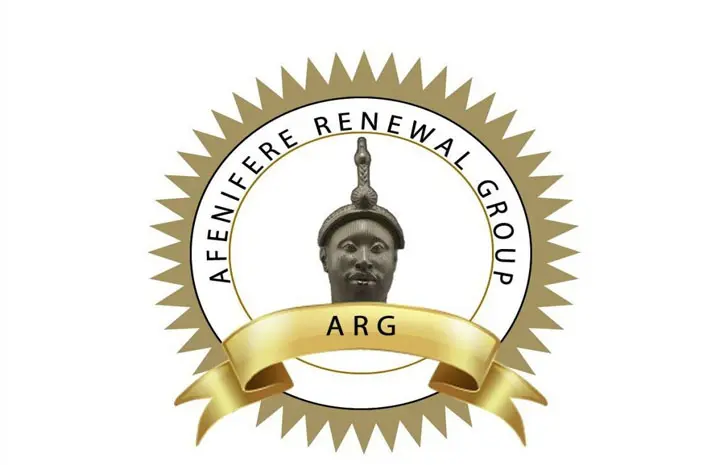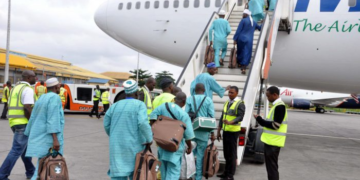Apex Yoruba socio-cultural organisation, Afenifere has said that events unfolding in Nigeria in recent times have further confirmed the fact that those piloting the affairs of the country presently are far away from reality.
The organisation stated that it is therefore not surprising that steps being taken by the government do not touch the problems the masses are confronted with.
Afenifere in a statement issued yesterday and signed by its national publicity secretary Comrade Jare Ajayi, stated that three instances are worthy of immediate recall.
He said, ‘’First was the drama at the National Assembly on Wednesday, July 27, 2022, where the President of the Senate Ahmad Lawan went against the decision taken during
the close-door meeting of the House’s officials to discuss the security situation in the country with a notice of impeachment to be served on President Muhammadu Buhari. By coming out to prevent senators from discussing the issue, was Lawan working towards putting an end to the menace or assisting it to fester?”
It stated that for the minister of information, culture and national orientation Alhaji Lai Mohammed to have trivialise the threat to kidnap President Muhammadu Buhari by terrorists showed the deceitful nature of those around President Buhari.
It noted that after Federal Executive Council (FEC) meeting in Abuja on Wednesday, the minister of information, Mohammed, described the threat by terrorists to kidnap President Buhari and Governor El- Rufai as laughable while his counterpart in the ministry of finance, Zainab Ahmed, said that Nigeria’s economy is doing very well, far better than under the previous administrations.
Afenifere added that what further drove home the fact that President Buhari is not always aware of the reality of the country’s situation was the disclosure by Governor El-Rufai of Kaduna State that President Muhammadu Buhari was not aware of terrorists’ threat to kidnap both the President and himself until he (El-Rufai and Governor Bello Matawalle of Zamfara State) told him.
Afenifere while deflating the minister’s claim pointed out that, “As at 2015 when President Buhari took over, Nigeria’s inflation rate was a single digit of 9.01 per cent. Inflation today is 17.71 per cent. As of 2015, Nigeria’s debt revenue stood at N8.8 trillion. As at today, the debt figure is N41 trillion. In 2015, a litre of petrol stood at N87 while it hovers around N190 –N200 today per litre. In 2015 when President Buhari assumed office, the dollar was exchanging at about N190 per US Dollar. Today the exchange rate is a little above N700 to a Dollar.”
Afenifere stated further that when President Buhari assumed office, the Gross Domestic Product (GDP) stood at $486 billion. The GDP as of 2021 dropped to $440 billion while it has dropped even further now. The group wondered in what way the economy was doing well as claimed by the finance minister.
“Finance Minister said that the economy is doing ‘very well’. With such briefings from his officer in charge of economy, how would the President know that his government has failed woefully in that sector?” the group said.
It noted that a statement made by the minister of information describing the threat of kidnap as laughable while speaking with journalists shows those working with the president are not telling him the truth.
The organisation stated that the reality around the country including Abuja has proved otherwise, making reference to programmes such as that of the Nigerian Law School in Abuja, which were shifted or adjusted, while unity schools were shut down.
Afenifere noted that officials of the presidential guards were reportedly attacked first on the way to Daura, President Buhari’s hometown and second in the Federal Capital Territory as confirmed by the Army authority.
It also noted that the deputy speaker of the House of Representatives, Idris Wase, on Wednesday, July 27, said the Department of State Services, DSS, shared 44 intelligence reports before the attack on Kuje Prisons.
Afenifere explained that earlier in the week, an NSCDC leaked memo indicates that Boko Haram and ISWAP terrorists were amassing dangerous weapons for massive attacks on Katsina, Lagos, FCT, Kaduna, and Zamfara states.
In reply, Sir Stephen said: “I don’t believe there is clear evidence that the prime minister breached many other times.”
He said he was personally involved in the decision-making and was confident in the outcome of the force’s investigation.
“I’m not particularly concerned about what the prime minister thinks, I do my job without fear or favour,” Sir Stephen said, who is in post until a replacement is found for former boss Dame Cressida Dick.
Sir Stephen was then questioned about an officer on duty in Downing Street who, according to the Grey report, had seen “a large number of people” at a “crowded and noisy” party, where “some members of staff drank excessively”.
The officer had responded to a panic alarm button that was accidentally triggered at the 18 December, 2020 party.
Asked why the officer had not challenged the partygoers over COVID-19 breaches, Sir Stephen said Downing Street officers were there for security and not to “police what goes on inside the building”.
“And I don’t believe that the officer that we’re talking about felt that they were seeing something that necessarily breached coronavirus regulations,” Sir Stephen said.
Later, he said one challenge officers faced was working out which gatherings were work-related, and which ones were not.
“I think it’s impossible to expect an officer, walking through a room with a lot of people in it, to work out whether or not these people are breaching coronavirus regulations when it’s taken a team of experienced detectives many many weeks to do the same thing,” Sir Stephen said.
Setting out how the Met Police carried out its investigation, Sir Stephen said officers examined “every case”, looking at “hundreds of documents, including emails, electronic door logs, diary entries, witness statements, photographs, CCTV images, and we sent questionnaires to people who we felt may have breached legislation”.
Officers looked at “each individual’s activity” at each event, how long it lasted and the amount of time an attendee spent there, Sir Stephen said.











